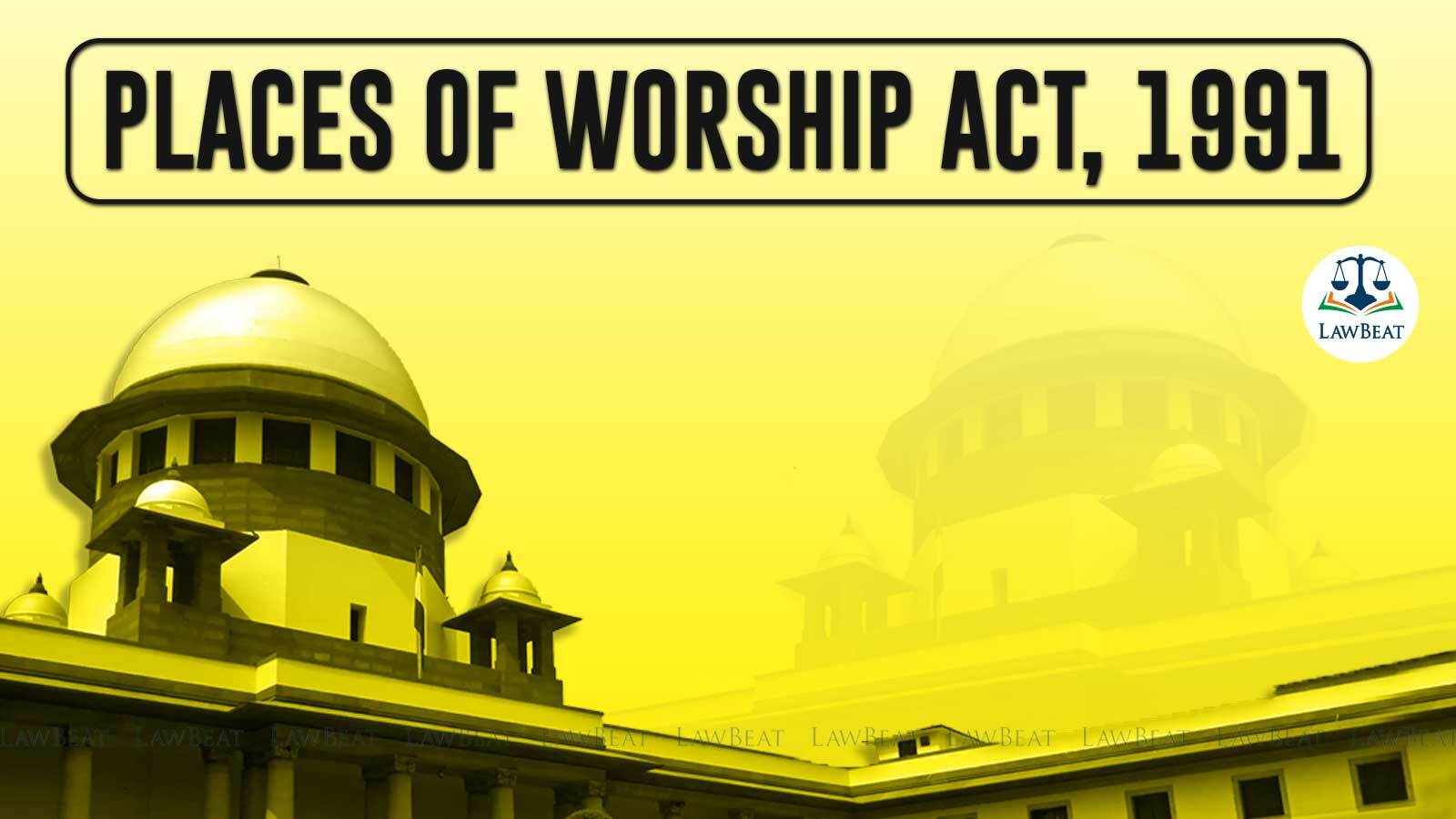Muslims cannot assert right on any piece of land claiming to be a mosque: Another plea in Apex Court challenges Places of Worship Act

Another Public Interest Litigation plea in the Supreme Court has challenged the provisions of the Places of Worship Act stating that Muslims cannot assert any right in respect of any piece of land claiming to be a mosque unless it has been constructed on legally owned and occupied virgin land.
It is added that the Temple's religious character does not change after demolition of roof, walls, pillars, foundation and even offering Namaz.
After the Pran Pratishtha of the idol, A Temple is Always a Temple until the Idol is shifted to another temple with rituals of Visarjan, the plea adds.
PIL further submits that the places constructed in derogation of the personal law, cannot be termed as a 'place of worship'.
It also states that the structures which have been constructed according to tenets of Islam and mosques constructed against the provisions contained in Islamic law cannot be termed as Mosque.
"Religious Character of temples (places of Worship) and mosques (places of Prayer) is totally different. So, the same Law can‟t be applied to both", adds the PIL
It is further stated that the Temple is a place of worship as God resides therein and that's why the Temple is always a temple and its religious character never changes.
Whereas Mosque is simply a place of prayer and that's why, in gulf countries (birthplace of Islam), it is demolished/shifted even for making roads, schools hospitals, and public offices, the petition submits.
Accordingly, the plea has challenged Section 2, 3, and 4 of the Places of Worship Act, 1991 stating that provisions are violative of Articles 14, 15, 21, 25, 26, 29 of the Constitution.
It may also be noted that another plea challenging the Places of Worship Act 1991 is pending before the Supreme Court filed by Advocate Ashwini Upadhyay which states that "the Act has taken away the power of the Court and Religious Sects to restore their places of Worship". Notice was issued on the petition in March of 2021.
In this plea, recently, Jamait Ulama-I-Hind filed an impleadment application before the Top Court.
In addition to this, one more plea has challenged the 1991 Act stating that religious fundamentalists’ invasion on the land of India was always followed by the destruction of places of worship of eminence and a place of worship of different religious denomination was constructed or established over the ruins of the earlier structure and thus, each and every place of worship of eminence of Sanatan (Hindu) religion has one or more place of worship of a particular religious denomination in its vicinity.
Another plea challenging the Places of Worship Act 1991 is pending before the Supreme Court filed by Advocate Ashwini Upadhyay which states that "the Act has taken away the power of the Court and Religious Sects to restore their places of Worship". Notice was issued on the petition in March of 2021.
In this plea, recently, Jamait Ulama-I-Hind filed an impleadment application before the Top Court.
In addition to this, one more plea has challenged the 1991 Act stating that religious fundamentalists’ invasion on the land of India was always followed by the destruction of places of worship of eminence and a place of worship of different religious denomination was constructed or established over the ruins of the earlier structure and thus, each and every place of worship of eminence of Sanatan (Hindu) religion has one or more place of worship of a particular religious denomination in its vicinity.
Case Title: Karunesh Kumar Shukla Vs. Union of India & Ors.
